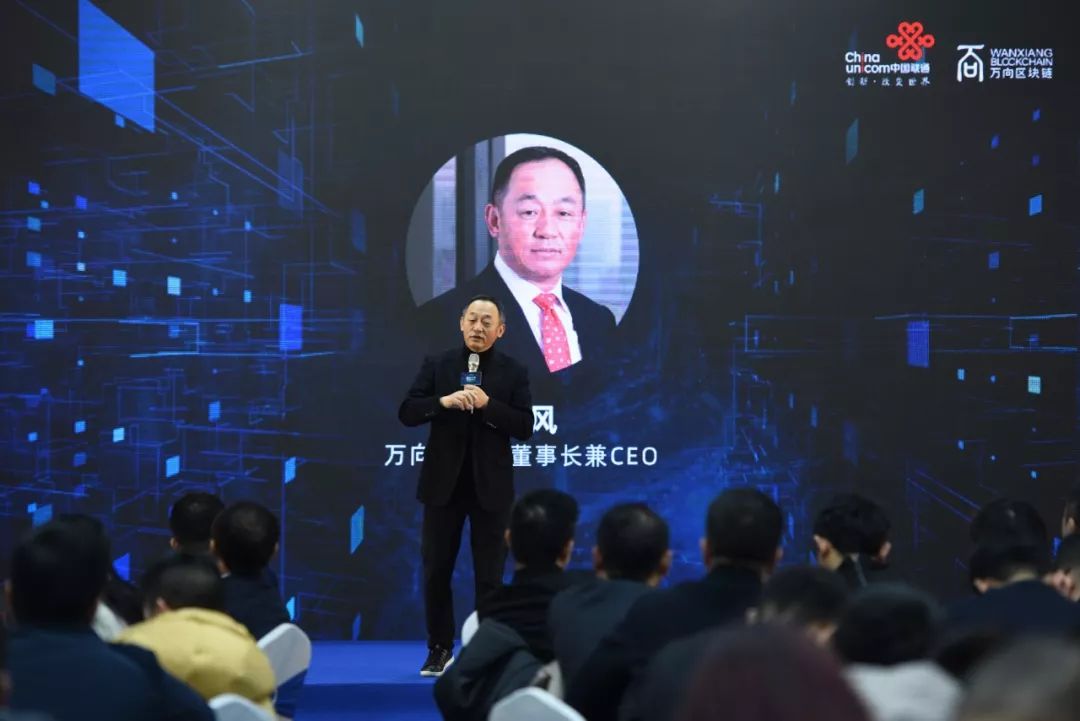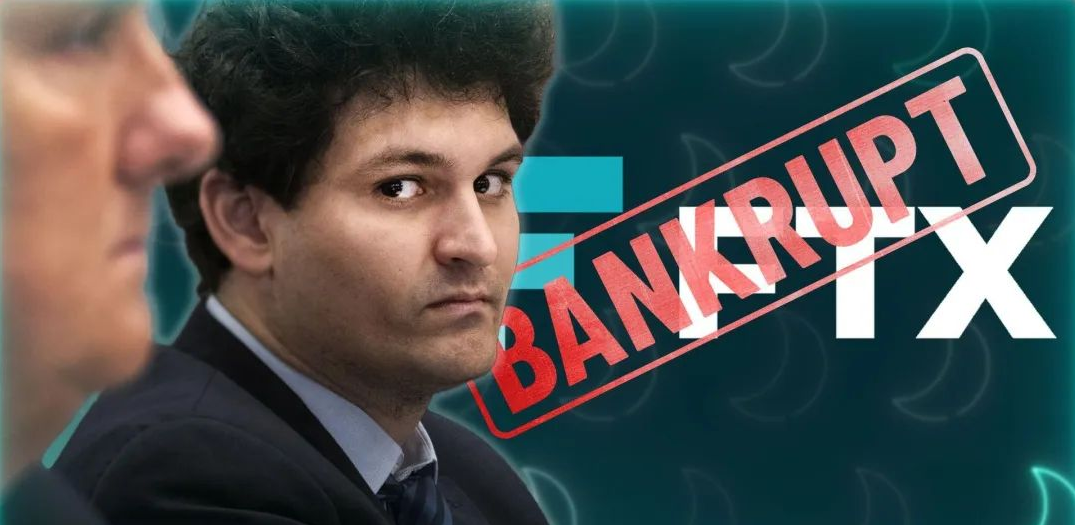Wanfeng Blockchain Xiao Feng: The blockchain is pursuing ecological effects
This article is the content of the speech by Dr. Xiao Feng, Chairman and General Manager of Wanxiang Blockchain at the "Internet of Things + Blockchain Joint Innovation Center 2019 Industry Ecological Salon".
The following is the content of Dr. Xiao Feng's speech, some of which do not affect the original intention of deletion:

It is a great honour to come to China Unicom Internet of Things again. The last time I came here was June 19, when Wanxiang Blockchain and China Unicom Internet of Things set up a joint innovation center of the Internet of Things + Blockchain.
- Shanghai Stock Exchange initiated the formulation of industry blockchain application technology standards to promote the application of multiple blockchain business scenarios
- Panoramic scan of blockchain in 2019
- Castle Island Ventures Partners' "Eight Prophecies" for 2020
Google has a well-known slogan called "Do No Evil". The blockchain industry also has a slogan called "Cannot do evil". There are two systems at present. One is a system that I promise not to do evil; the other is a system that can't be evil from a technology. Which system would you choose to believe more? I will definitely choose to believe in a system that cannot do evil, as is the case with blockchain systems.
How can the blockchain "do no evil"? From a database perspective, it is designed to be a database where everyone can only add data, and no one can reduce, delete, or tamper with it. This is its first feature.
In the last century, when the Internet began to be used for civilian use, Americans asked what the Internet was. At that time, the American media introduced it like this: "The Internet is an information machine." The Internet is a system invented to send, collect, store, and process information more efficiently and at lower cost. Blockchain allows information on the Internet to no longer require third-party endorsement to provide credibility, so "blockchain is a machine of fact."
The database is designed into such a structure. How do you record data on it so that it becomes a real fact? This is the distributed ledger, which specifies how you add data.
There are two biggest characteristics of distributed ledgers: first, your data is not added by you, but by an independent third party and a randomly drawn person you do not know to help you add data to the chain on. Therefore, you cannot collude with him to modify the data. The person who records data on the chain does not know you and does not charge you.
Second, a piece of data is not only confirmed by one person and recorded on the chain. It also requires consensus on the entire network, and a consensus algorithm needs to be confirmed by others. Everyone thinks it should be recorded this way before this data is recorded.
One is the structure of the database, and the other is the method of data recording. These two basically guarantee that once the data is native to the blockchain, we can assume that it is a fact.
This is also the reason why Wanxiang Blockchain and China Unicom IoT jointly established the IoT + Blockchain Joint Innovation Center in June this year (2019). Adding these two together is what Chen Xiaotian always said: the Internet and the Internet of Things are responsible for digitizing the physical world, and the blockchain is the machine of facts. These numbers are used to confirm and make them assets. After assetization, many financial services can be provided. The smart animal husbandry public service ecological platform we jointly created is to give a live cow, wear ear tags, collars and other sensors, collect real-time dynamic data of the cow from birth to the stall, and store these data on the blockchain for data And assetization, farms can use data assets as collateral to finance loans to banks. Through this platform, the bank can manage the collateral well, so it is also willing to lend to the farm.
We have been saying that data is an asset, but if you really want to turn data into assets, you must convince everyone that these numbers cannot be changed. This is what blockchain + IoT can bring.
In the past two or three decades, a series of digital tools have helped us to build a digital world outside the physical world. The Internet and the Internet of Things are one of them. The Internet and the Internet of Things allow us to collect massive amounts of data at low cost and efficiently. The behavioral data of each of us has actually existed for a long time. Before, you also shop and have a circle of social friends, but if there is no Internet, your behavioral data cannot be collected, or it cannot be collected at such a low cost. . Business is like this. The high cost means that it is not commercially feasible and cannot be a business.
The Internet and the Internet of Things are not enough. What role can blockchain play in it? Blockchain allows you to trust this data at low cost. Even if a lot of data is collected, it takes a high cost to identify and believe, and even needs the help of an intermediary agency to believe, that cannot be turned into a business. Artificial intelligence enables us to use and process massive amounts of data efficiently and cost-effectively. Cloud computing helps us store and analyze massive amounts of data. In the age of the industrial economy, fossil fuels are the primary driving force for business development, and in the age of the digital economy, data. Only the combination of the Internet, the Internet of Things, the blockchain, artificial intelligence, and cloud computing can make the digital economy truly feasible, make data a real asset, and drive the development of a new economy.
Today I am very happy to see the size of our team continue to grow. In my opinion, in the industrial age, the biggest commercial pursuit is scale efficiency, which requires large-scale production, standardization and low cost. But scale benefits are additive effects, 1 + 1 = 2, 2 + 2 = 4. In the information age, Internet companies are no longer emphasizing scale effects, but network effects. The network effect is a multiplicative effect. Taking communication as an example, if there are only two people in this communication network, only one-to-one communication can occur. But if both networks have four people, then 4 × 4 becomes 16 instead of 4 + 4 = 8.
What is a blockchain? Blockchain is another upgrade of this network effect, and the pursuit of ecological effects. What are the ecological effects? It's a distributed economy, not a business model for a company. It's like a forest. It's an ecosystem. Everyone is no longer the way to set up a company, but to do something together as a stakeholder.
The blockchain distribution mechanism is no longer like a company, nor is the distribution method the original one. We want to create an ecological effect, not a network effect. We need to unite more, not only beef cattle projects, but also many other projects. Everyone contributes value together, and uses another set of blockchain-based benefit distribution mechanism, that is, the stakeholder distribution mechanism, rather than the shareholder distribution mechanism. This is a new model in the distribution of benefits brought by the blockchain. On this basis, we look forward to working together to build a better ecology, an open economy, and a fully scalable, borderless business.
This is my share today, thank you all.
We will continue to update Blocking; if you have any questions or suggestions, please contact us!
Was this article helpful?
93 out of 132 found this helpful
Related articles
- Year-end Special | Chain Node 2019 Annual Ice Sculpture Awards
- Science | What is the SHA256 algorithm used for Bitcoin mining?
- Survey: The average annual salary is over $ 150,000. Is the US blockchain development treatment so high?
- Hesitant fighting nations, finally to test the stablecoin!
- Officially overweight central bank digital currency (CBDC), South Korea's central bank announces the establishment of a CBDC working group
- Vitalik: The layered structure of the blockchain still has shortcomings, and layer 1 and layer 2 need to be developed in parallel in the short term
- Beijing Securities Regulatory Bureau of the China Securities Regulatory Commission: Institutions and personnel in Beijing must not promote or promote relevant virtual currency projects or platforms






